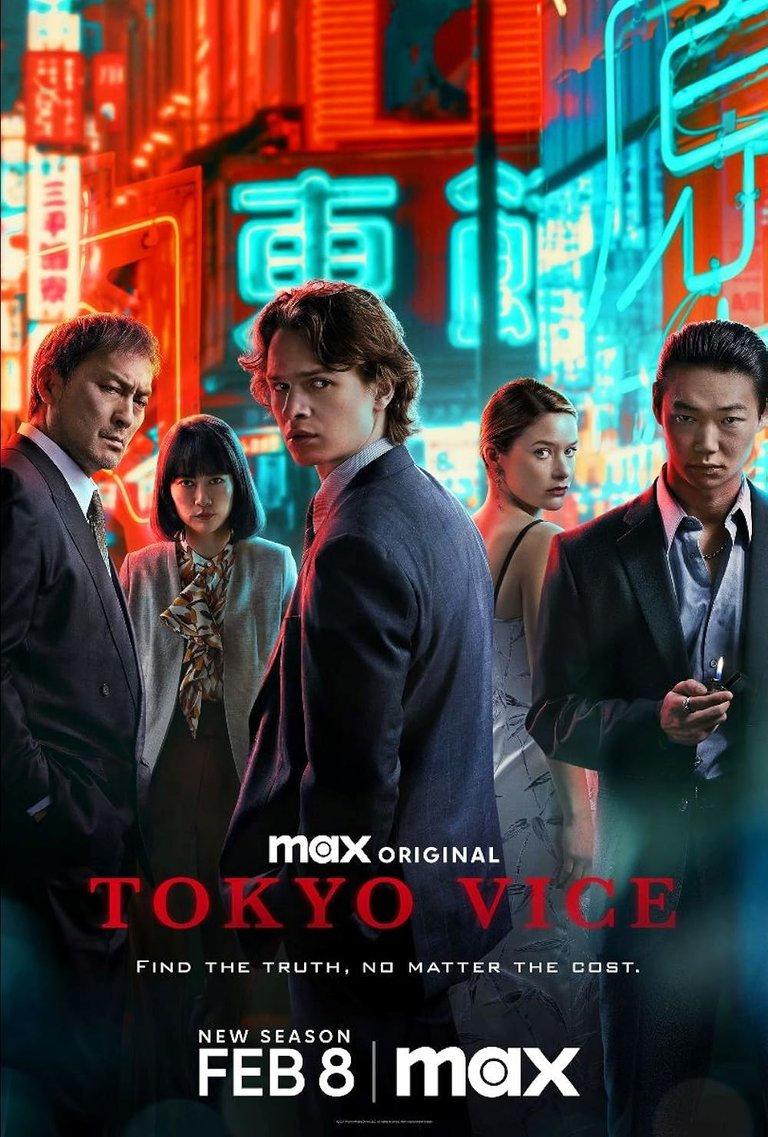
The beginning of this year will, for the next few years, remind me that during this time we received two valuable Japanese-American co-production series. One is Shogun from FX, i.e. Disney, the other is a continuation of Tokyo Vice. I liked the first season, but it could have been even better. However, the creators pointed out (or at least that's what they initially advertised) that, like the Dune dilogy, the first season is only an introduction. Preparing the playing field and placing many pieces, as in chess. Did they fulfill their promise?
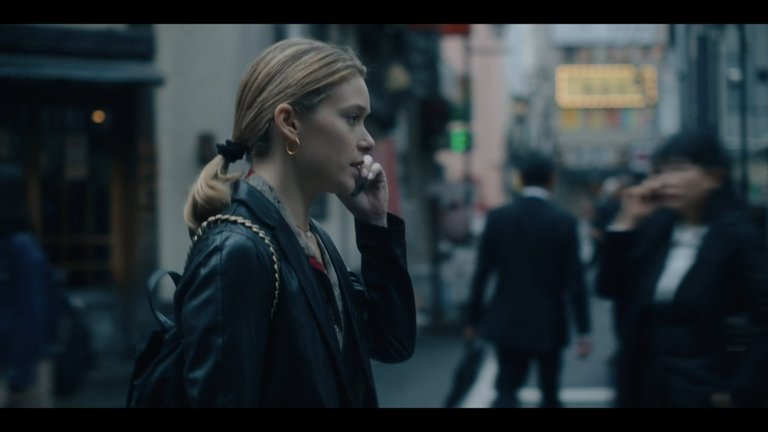
It is no accident that I emphasized in the introduction that both series were created in cooperation with people from two countries. I'm not even a moderate fan of Japanese cinematography, but I don't have to be to know that it is specific. Like Europeans (except the English), the Japanese cannot create such balanced series. Or to put it another way, it's not that they can't create something that is interesting, original, and at the same time pleasant to watch. It's just not the norm for them. In general, neither do Americans (or anywhere else), but they do better than them. How do I know this? From people who, unlike me, like Japanese dramas but are aware of their weaknesses. Just like I do with battle shounen - they still make me very happy, even though I can see their problems clearly. When I talked about balanced series, I meant the approach to acting, special effects, pacing, and creating too many episodes. The English have long ago understood the art of creating series (fewer episodes, fewer unnecessary plots that lead to nothing), Americans are learning it. Therefore, it is enough for producers to supervise the creators and provide them with money and artistic freedom, clearly stating their expectations. By combining good management and cultural diversity, you can create something beautiful.
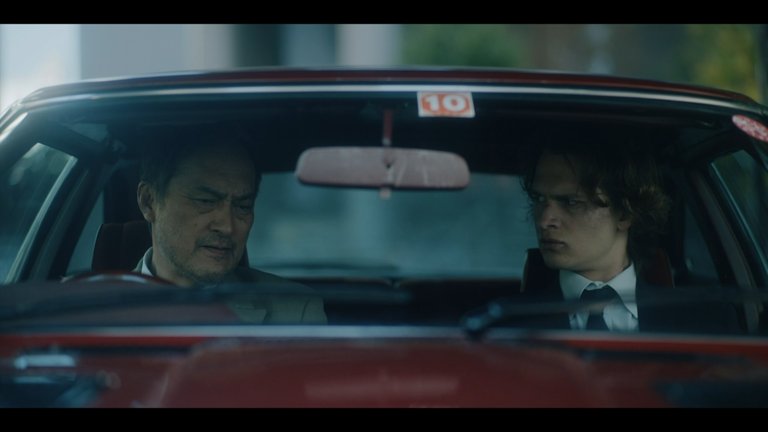
The story presented in Tokyo Vice takes place in the 1990s. It is a loose adaptation of the memoirs of the talented and cheeky journalist Jake Adelstein. He works for one of the most prestigious Japanese newspapers. Due to certain events, Jake starts investigating the Yakuza. It is the Japanese mafia that distributes drugs, controls various businesses (i.e. collects tribute) and other things typical of every organized crime group in the world. Detective Hiroto Katagiri helps him in the investigation. Samantha, a European woman working as a hostess (an escort who does not engage in prostitution, her task is to make the time of wealthy clients pleasantly, drinking alcohol and persuading them to buy the most expensive things possible in the establishment), whose friend was killed in the case, is also involved in the case. during "extra order".
To answer the question in the first paragraph... Yes. You can see that the first episodes were an introduction to something bigger. Now that we have all the pieces on the chessboard (and even new ones!), the creators have freedom to act. There is no need to explain who plays what role, we can focus only on the action. The police and Adelstein no longer limit themselves to collecting information, but mainly act. The internal war between the factions (as well as the divisions within the factions themselves) of the Yakuza is growing stronger and we are seeing its effects. The heroes face difficult dilemmas - choose the good of the individual or the good of the whole? Destroy one life consciously, or give free rein to evil people and risk the death of many others? Take care of yourself or worry about other people's fate? On paper these questions look pretty standard, but in the finished video they look really good. Script, actors, direction, atmosphere, pacing. I watched every episode with bated breath and, apart from one, the penultimate one, I was not bored at all. My girlfriend doesn't really like anime and Japan, and the first season was only slightly better than OK for her. She treated it as a series for eating dinner, i.e. so that it wouldn't be too boring. She was skeptical about S2, and after two episodes, she was as invested as I was. Mainly because the female threads are more diverse and better, but this is also the result of the whole story. From the second episode, she complained every time we finished the show and it was time to go to bed.
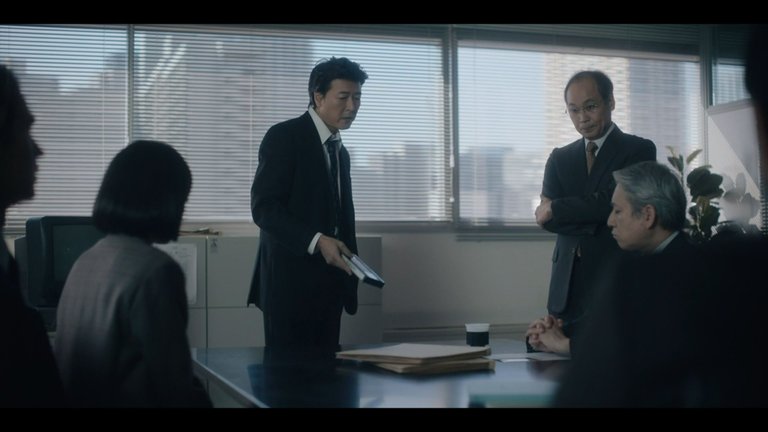
When it comes to new characters, I liked Detective Chief Katagiri (Ken Watanabe) the most. From the very first scene it's clear that she's a woman with big balls and a strong moral backbone. Nay! He is not afraid of bold moves. Sorry for the understatement, a woman doesn't fuck around dancing with anyone. She doesn't ask, she gives an order and it has to be carried out. It doesn't matter how (as long as it's at least semi-legal), it's the goal that counts. This is perfectly demonstrated in the scene when he enters the Yakuza headquarters and shouts at the mafia as if they were unruly little shits who needed to be taught discipline with a stick. One of the security guards tried to scare her with a knife. The officer laughed at him and pacified him with a few moves, like a little boy who thought his stick was an AK-47. As for the plots of the rest of the women, I consider them to be standard. Not "standard and poor", but "standard and ok". They are made correctly, they are not boring (except for the one episode I mentioned), but I cannot say that they stand out for their originality or ingenuity. And above all, they are intended for women, so for obvious reasons I am not their recipient.
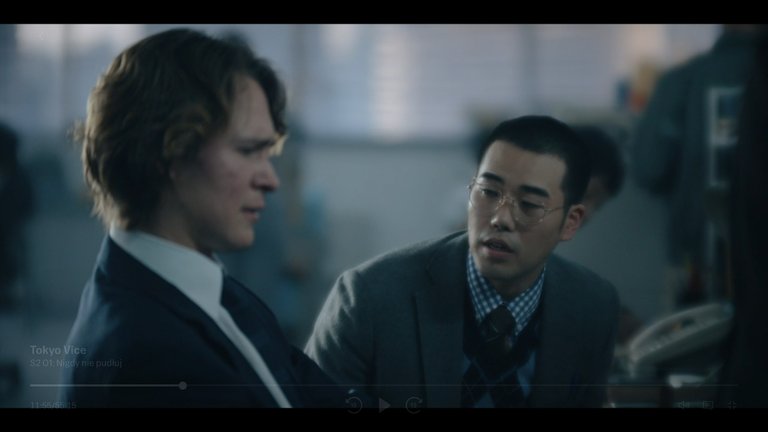
I don't like the protagonist from season 1. Yes, he had some qualities that I liked, but somehow I couldn't like him. This season, he is still not one of my favorite characters (Katagiri, his superior, and Sato from Yakuza - in that order, top-3 of my favorite characters), but he has gained my sympathy. Not for any particular reason, it's the sum of several of them. I liked his confidence. He showed that he actually has balls and is not afraid to take the matter on a knife's edge, even if the knife is in contact with his neck. I also liked his journalistic ethos. Some may disagree with me because of one thread, but I think he had no choice. Rules are important, and I like to emphasize how much they are, but sometimes they have to be broken. The series shows this in several examples, which is especially striking in the context of the Japanese. The way they were shown in the game Ghost of Tsushima or the Shogun series is not fantasy or an invention of Western civilizations. For the Japanese, such breaking the rules is a matter of honor, and honor was for a long time (and still is, but to a lesser extent) the most important thing for them. Now I can't find this link, but a dozen or so years ago I read about one of the last cases where a daughter committed suicide to oppose her father's decision. Their approach to honor is so sick that if a child cannot agree with a parent's decision, he kills himself. To emphasize the importance of your words. It used to be common. Continuing the interrupted thread - especially in the case of people who work in a profession of social trust. However, I liked Adelstein most for his collaboration with Katagiri. It's not the same level of chemistry as the couples in Yellowstone or Gilded Age, but they still get along great. Even though they differ in approach and character, they can get along and act like a well-functioning married couple. The action of one helps the other and vice versa. They also know when to take decisive steps and when to wait out a worse period. And the jokes between them are really cute.
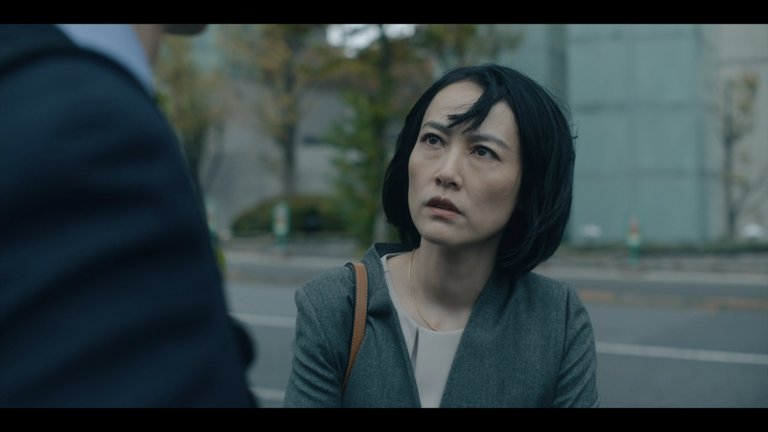
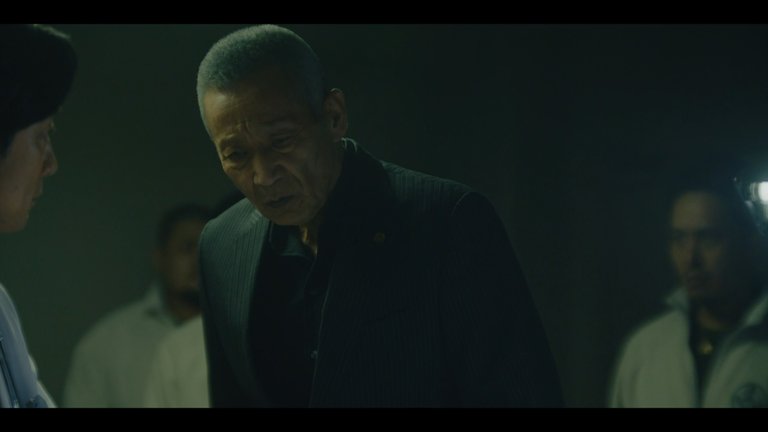
To sum up. Tokyo Vice is not a "must watch" series, but I can easily classify it as one of the better ones. It will appeal to both men and women. You can also watch it together. Asia doesn't know the Japanese approach to culture, life and their mentality that well (me neither, but that's compared to people who really know it), but she had no problem understanding the whole thing. For me, it was, above all, a good action series that was very enjoyable to watch. Apart from some minor things, I didn't see any flaws in it. A strong 8.5/10 from me.

Początek tego roku przez kilka najbliższych lat, będzie mi przypominał o tym, że w tym czasie dostaliśmy dwa wartościowe seriale koprodukcji Japońsko-Amerykańskiej. Jeden to Shogun od FX, czyli Disneya, drugi to kontynuacja Tokyo Vice. Pierwszy sezon mi się podobał, ale mógł być jeszcze lepszy. Twórcy jednak zaznaczyli (a przynajmniej tak gopoczątkowo reklamowali), że podobnie jak dylogia Dune, pierwszy sezon to jedynie wprowadzenie. Takie przygotowanie pola do gry i ustawienie wielu figur, jak w szachach. Czy spełnili swoją obietnicę?

Nieprzypadkowo podkreśliłem we wstępie, że oba seriale powstały przy współpracy ludzi z dwóch krajów. Nie jestem nawet umiarkowanym miłośnikiem Japońskiej kinematografii, ale nie muszę nim być, by wiedzieć, że jest ona specyficzna. Podobnie jak Europejczycy (poza Anglikami), Japończycy nie umieją tworzyć tak zbalansowanych seriali. Albo inaczej, to nie tak że nie umieją stworzyć czegoś, co jest ciekawe, oryginalne, a jednocześnie przyjemnie się to ogląda. Po prostu nie jest to u nich normą. U Amerykanów w sumie też nie (jak i gdziekolwiek indziej), ale radzą sobie lepiej od nich. Skąd to wiem? Od ludzi, którzy w przeciwieństwie do mnie lubią Japońskie dramy, ale zdają sobie sprawę z ich słabości. Tak jak ja w przypadku battle shounenów - sprawiają mi nadal dużą radość, mimo że widzę ich problemy jak na otwartej dłoni. Mówiąc o zbalansowanych serialach, miałem na myśli podejście do aktorstwa, efektów specjalnych, pacingu, czy tworzenia zbyt wielu odcinków. Anglicy już dawno temu zrozumieli sztukę tworzenia seriali (mniej odcinków, mniej zbędnych wątków które do niczego nie prowadzą), Amerykanie się tego uczą. Zatem wystarczy, że producenci przypilnują twórców oraz zapewnią im pieniądze i swobodę artystyczną, wyraźnie zaznaczając swoje oczekiwania. Łącząc dobre zarządzanie i odmienność kulturalną, możnastworzyć coś pięknego.

Historia zaprezentowana w Tokyo Vice, dzieje się w latach '90 ubiegłego wieku. Jest ona luźną adaptacją wspomnień utalentowanego i bezczelnego dziennikarza Jake'a Adelsteina. Pracuje dla jednej z najbardziej prestiżowych Japońskich papierowych dzienników. Na skutek pewnych wydarzeń, Jake rozpoczyna śledztwo śledztwo przeciwko Yakuzie. Jest to Japońska mafia, która rozprowadza narkotyki, kontroluje różne biznesy (czyli zbiera haracze) i inne rzeczy typowe dla każdej zorganizowanej grupy przestępczej na świecie. W śledztwie pomaga mu detektyw Hiroto Katagiri. W sprawę angażuje się również Samanta, Europejka pracująca jako hostessa (dama do towarzystwa, która nie prostytuuje się, jej zadaniem jest umilanie czasu w miły sposób bogatym klientom przy alkoholu i namawianiem ich do kupowania jak najdroższych rzeczy w lokalu), której koleżanka została zabita w trakcie "extra zlecenia".
Odpowiadając na pytanie z pierwszego akapitu... Tak. Widać że pierwsze epizody były wprowadzeniem do czegoś większego. Teraz gdy mamy wszystkie pionki na szachownicy (a nawet doszły nowe!), twórcy mają swobodę działania. Nie trzeba wyjaśniać, kto pełni jaką rolę, możemy się skupić wyłącznie na akcji. Policja i Adelstein nie ograniczają się już tylko do zbierania informacji, ale głównie działają. Wewnętrzna wojna między frakcjami (jak również podziały wewnątrz samych frakcji) Yakuzy zacieśnia się i widzimy jej skutki. Bohaterowie stają przed trudnymi dylematami - wybrać dobro jednostki, czy ogółu? Zniszczyć jedno życie w świadomy sposób, czy dać wolną rękę złym ludziom i zaryzykować śmierć wielu innych? Zadbać o siebie, czy przejmować się cudzym losem? Na papierze te pytania wyglądają dość standardowo, ale w gotowym filmie prezentują się naprawdę dobrze. Scenariusz, aktorzy, reżyseria, klimat, pacing. Oglądałem każdy odcinek z zapartym tchem i poza jednym, przedostatnim, nie nudziłem się ani trochę. Moja dziewczyna niespecjalnie lubi anime i Japonię, a pierwszy sezon był dla niej tylko trochę lepszy niż OK. Traktowała to jako serial do jedzenia obiadu, tj. żeby nie było zbyt nudno. Podchodziła sceptycznie do S2, a po dwóch odcinkach, zaangażowała się równie mocno, ja. Głównie dlatego, że kobiece wątki są bardziej różnorodne i lepsze, ale to też zasługa całości. Od drugiego odcinka marudziła za każdym razem, gdy skończyliśmy seans i trzeba było kłaść się spać.

Jeśli chodzi o nowych bohaterów, najbardziej polubiłem szefową detektywa Katagiri (Ken Watanabe). Już od pierwszej sceny widać, że to baba z dużymi jajami i mocnym kręgosłupem moralnym. Mało tego! Nie boi się odważnych ruchów. Przepraszam za to niedopowiedzenie, kobieta nie pierdoli się w tańcu z nikim. Ona nie prosi, ona wydaje rozkaz i ten ma zostać zrealizowany. Nie ważne jak (byle było to przynajmniej połowicznie legalne), liczy się cel. Doskonale pokazuje to scena, gdy wchodzi do siedziby Yakuzy i pomiata mafią, jakby ci byli krnąbrnymi gówniarzami, których należy nauczyć dyscypliny przy pomocy kija. Jeden z ochroniarzy próbował ją przestraszyć nożem. Pani oficer wyśmiała go i spacyfikowała kilkoma ruchami, jak małego chłopca który myśli, że jego kijek to AK-47. Jeśli chodzi o wątki reszty kobiet, to oceniam je jako standardowe. Nie "standardowe i słabe", tylko "standardowe i ok". Są zrealizowane poprawnie, nie nudzą (poza tym jednym odcinkiem, o którym wspomniałem), ale nie mogę też powiedzieć, że się wyróżniają oryginalnością lub pomysłowością. No i przede wszystkim są przeznaczone dla kobiet, więc z oczywistych powodów nie jestem ich odbiorcą.

Nie przepadam za protagonistą z 1 sezonu. Owszem, miał kilka cech, które mi się podobały, ale jakoś nie zdołałem go polubić. W tym sezonie nadal nie należy do czołówki moich ulubionych postaci (Katagiri, jego przełożona i Sato z Yakuzy - w tej kolejności top-3 moich ulubionych bohaterów), ale zdobył moją sympatię. Nie z jakiegoś konkretnego powodu, to suma kilku z nich. Polubiłem jego pewność siebie. Pokazał że faktycznie ma jaja i nie boi się postawić sprawy na ostrzu noża, nawet jeśli ten nóż styka się z jego szyją. Spodobał mi się też jego etos dziennikarski. Niektórzy mogą się za mną nie zgodzić ze względu na jeden wątek, ale uważam że nie miał wyjścia. Zasady są ważne, lubię podkreślać jak bardzo, niemniej czasem trzeba je złamać. Serial pokazuje to na kilku przykładach, co jest szczególnie uderzające w kontekście Japończyków. To jak zostali pokazani w grze Ghost of Tsushima lub serialu Shogun, nie jest fantastyką i wymysłem zachodnich cywilizacji. Dla Japończyków takie złamanie zasad to kwestia honorowa, a honor przez długi czas był dla nich (i w sumie nadal jest, ale już w mniejszym stopniu) rzeczą najważniejszą. Teraz nie mogę znaleźć tego linka, ale kilkanaście lat temu czytałem o jednym z ostatnich przypadków, jak córka popełniła samobójstwo, by się sprzeciwić decyzji ojca. Ich podejście do honoru jest tak chore, że jak dziecko nie może się zgodzić z decyzją rodzica, to się zabija. Dla podkreślenia wagi swoich słów. Dawniej to było powszechne. Kontynuując przerwany wątek - zwłaszcza w przypadku ludzi, którzy pełnią zawód zaufania społecznego. Najbardziej jednak polubiłem Adelsteina za jego współpracę z Katagirim. Nie jest to ten sam poziom chemii, jaka jest między parami w Yellowstone lub Gilded Age, ale i tak świetnie się dogadują. Mimo że różnią się podejściem i charakterem, to potrafią się dogadać i działać jak dobrze funkcjonujące małżeństwo. Działanie jednego, pomaga drugiemu i odwrotnie. Wiedzą też kiedy trzeba podjąć zdecydowane kroki, a kiedy trzeba przeczekać gorszy okres. No i żarty między nimi są naprawdę urocze.


Podsumowując. Tokyo Vice nie jest serialem typu "must watch", ale bez problemu mogę go zaklasyfikować do grupy tych lepszych. Spodoba się zarówno mężczyznom, jak i kobietom. Można go też oglądać wspólnie. Asia nie zna tak dobrze Japońskiego podejścia do kultury, życia i ich mentalności (ja też nie, ale to w porównaniu z ludźmi, którzy naprawdę się na tym znają), a nie miała problemu ze zrozumieniem całości. Dla mnie to był przede wszystkim dobry serial akcji, który bardzo przyjemnie się oglądało. Pomijając jakieś drobnostki, nie dostrzegłem w nim wad. Ode mnie mocne 8.5/10.